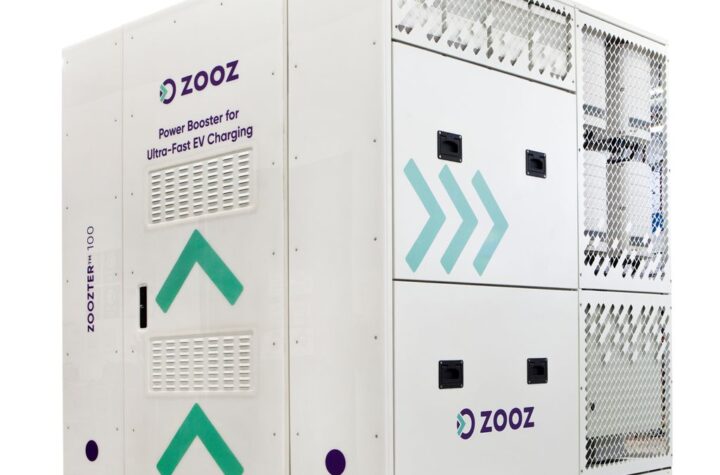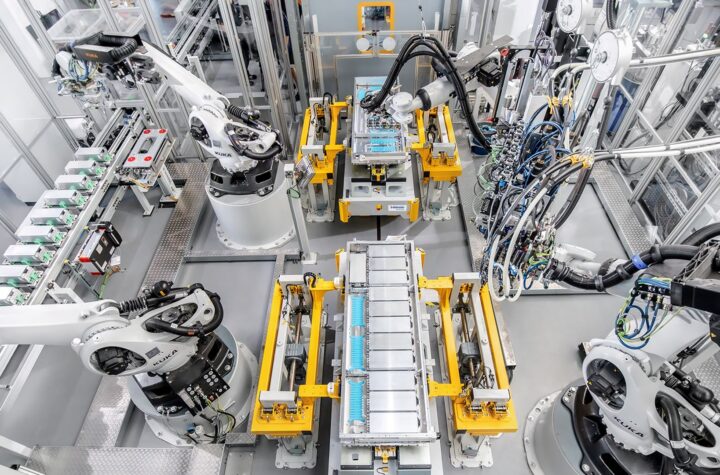Schneider National Inc. (NYSE: SNDR), a premier multimodal provider of
transportation, intermodal and logistics services, today announced the
completion of an electric charging depot at its South El Monte Intermodal
Operations Center in Southern California. The depot will power its battery
electric truck (BET) fleet, which will include nearly 100 Freightliner
eCascadias by year’s end, making it one of North America’s largest zero
emission fleets.
The charging site is over half the size of a football field, featuring 16
350 kW dual-corded dispensers, allowing the carrier to charge 32 trucks
simultaneously. The eCascadias will be able to achieve an 80% charge within
90 minutes.
“Schneider decided to lead the way by building our own depot in South El
Monte,” said Schneider President and CEO Mark Rourke. “It was important to
develop onsite charging because it is the most efficient solution to power
our growing electric fleet. With the infrastructure deficiency, we found
that we needed to collaborate with a wide array of experts to see our vision
come to fruition.”
Schneider’s facility is centrally located within the metro Los Angeles area
and adjacent to major highways with a high density of customers within a
50-mile radius. Already this year, Schneider has begun hauling deliveries
for Frito-Lay North America and Goodyear using the new eCascadia fleet,
supporting each companies’ supply chain sustainability goals. The eCascadias
have a range of approximately 220 miles.
The South El Monte site was funded through the Joint Electric Truck Scaling
Initiative (JETSI), a project funded by state and local agencies to increase
the number of zero emission heavy-duty trucks on the roads. Schneider
collaborated with similar sustainably-minded companies, including clean
transportation engineering and construction company Black & Veatch, to build
the site and create an operationally efficient layout.
“This 4,900-square-foot state-of-the-art electric truck charging hub is a
monumental testament to innovation and collaboration,” said Dave Hallowell,
Black & Veatch president of the connectivity, commercial, and industrial
sector. “The collaboration between Schneider and all the project partners
will result in new employment opportunities for the area, along with a
significant reduction in pollution.”
Funding for 50 of Schneider’s 92 BETs was made possible by JETSI, the first
battery electric truck project jointly funded by the California Air
Resources Board and the California Energy Commission, which together awarded
the project $27 million. Additional funding was provided by South Coast Air
Quality Management District, Mobile Source Air Pollution Reduction Review
Committee, the Port of Los Angeles and Southern California Edison. The JETSI
project is part of California Climate Investments, a statewide initiative
that puts billions of cap-and-trade dollars to work reducing greenhouse gas
emissions, strengthening the economy and improving public health and the
environment, particularly in disadvantaged communities.
“We know the future of sustainable transportation includes electric. That is
why we invested and collaborated with stakeholders along the supply chain to
work together to create this infrastructure and ultimately lower carbon
emissions. This would not be possible without our funding and grant
agencies,” said Rourke.
For the additional 42 trucks outside JETSI, five are jointly funded by the
U.S. EPA FY18 Targeted Airshed Grant and Hybrid and Zero-Emission Truck and
Bus Voucher Incentive Program (HVIP), seven are funded by the Volkswagen
Environmental Mitigation Trust, and 30 trucks are funded by HVIP.
Schneider worked alongside Daimler Truck North America (DTNA) as the
eCascadia evolved, piloting a truck for six months in 2019-2020 through
Freightliner’s Customer Experience fleet. Feedback from Schneider drivers
and the equipment team led to the production of the BET found in the
company’s fleet today.
“For decades, we’ve built a strong, deep relationship with Schneider,
aligning on strategic priorities such as safety and efficiency,” said
Daimler Truck North America Senior Vice President, Sales and Marketing David
Carson. “When initiating our electric vehicle development programs, we
assisted Schneider as they started and later scaled their fleet of
Freightliner eCascadias. They’ve provided our team with vital insight on the
opportunities for battery electric trucks in the goods movement industry.
Through the outreach and education being conducted as part of the JETSI
project, other fleets can learn from Schneider’s experiences and apply them
to future deployment of zero emission vehicles nationwide.”
At present, the company has accepted delivery of approximately a third of
its expected fleet. When fully operational, Schneider’s 92 BETs will have
the potential to avoid more than 81,000 pounds of carbon dioxide emissions
per day, the equivalent of removing 2,400 gas-powered cars from the road.
Each day these zero emission trucks will accelerate the company’s progress
toward its goal of reducing CO2 emission by 7.5% per mile by 2025 and a 60%
per mile reduction by 2035.
About Schneider
Schneider is a premier provider of transportation, intermodal and logistics
services. Offering one of the broadest portfolios in the industry,
Schneider’s solutions include Regional and Long-Haul Truckload, Expedited,
Dedicated, Bulk, Intermodal, Brokerage, Warehousing, Supply Chain
Management, Port Logistics and Logistics Consulting.
With over $6.6 billion in annual revenue, Schneider has been safely
delivering superior customer experiences and investing in innovation for
over 85 years. The company’s digital marketplace, Schneider FreightPowerR,
is revolutionizing the industry giving shippers access to an expanded,
highly flexible capacity network and provides carriers with unmatched access
to quality drop-and-hook freight – Always Delivering, Always Ahead.
For more information about Schneider, visit Schneider.com or follow the
company socially on Facebook, LinkedIn and Twitter: @WeAreSchneider.
Source: Schneider SNDR
About JETSI
The JETSI project is a landmark initiative that will deploy 100 Class 8
battery electric trucks (BETs) across Southern California to demonstrate
strategies to successfully scale market penetration of zero-emission
technologies. JETSI is the first battery electric truck project jointly
funded by the California Air Resources Board (CARB) and the California
Energy Commission (CEC), which together awarded the project $27 million.
Additional funding was provided by South Coast AQMD, MSRC, the San Pedro Bay
Ports and SCE. The JETSI project is part of California Climate Investments,
a statewide initiative that puts billions of Cap-and-Trade dollars to work
reducing greenhouse gas emissions, strengthening the economy, and improving
public health and the environment – particularly in disadvantaged
communities.
About California Air Resources Board
CARB’s mission is to promote and protect public health, welfare, and
ecological resources through effective reduction of air pollutants while
recognizing and considering effects on the economy. CARB is the lead agency
for climate change programs and oversees all air pollution control efforts
in California to attain and maintain health-based air quality standards.
About the California Energy Commission
The California Energy Commission is leading the state to a 100 percent clean
energy future. It has seven core responsibilities: developing renewable
energy, transforming transportation, increasing energy efficiency, investing
in energy innovation, advancing state energy policy, certifying thermal
power plants, and preparing for energy emergencies.
About Black & Veatch
Black & Veatch is a 100-percent employee-owned global engineering,
procurement, consulting and construction company with a more than 100-year
track record of innovation in sustainable infrastructure. Since 1915, we
have helped our clients improve the lives of people around the world by
addressing the resilience and reliability of our most important
infrastructure assets. Our revenues in 2022 were US$4.3 billion. Follow us
on www.bv.com and on social media.









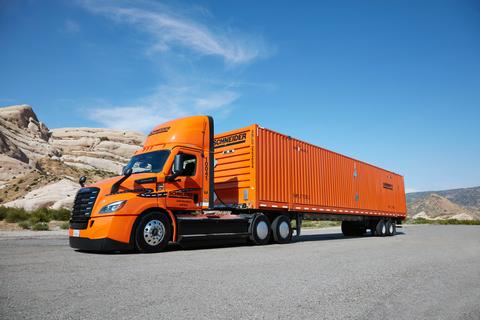
















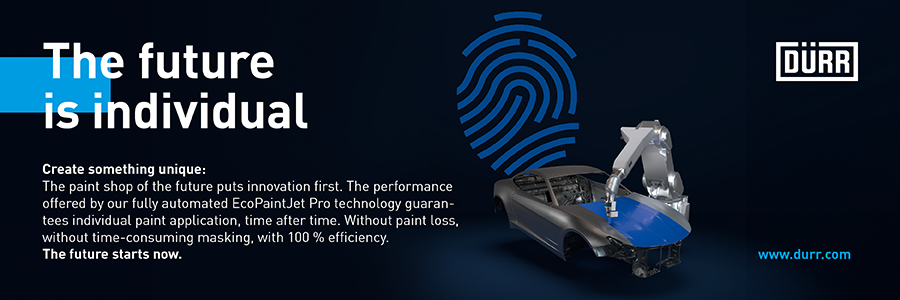





















 Ascend Elements to Supply Sustainable Cathode Precursor (pCAM) Made from Recycled Battery Materials to Major U.S. Customer
Ascend Elements to Supply Sustainable Cathode Precursor (pCAM) Made from Recycled Battery Materials to Major U.S. Customer 1952 Porsche America Roadster welcomed into National Historic Vehicle Register
1952 Porsche America Roadster welcomed into National Historic Vehicle Register Top 4 benefits of customized, closed-loop and end-of-life recycling programs for automakers
Top 4 benefits of customized, closed-loop and end-of-life recycling programs for automakers LeddarTech, a Disruptive Automotive Software Provider, to Become a Public Company Via Business Combination With Prospector Capital Corp.
LeddarTech, a Disruptive Automotive Software Provider, to Become a Public Company Via Business Combination With Prospector Capital Corp.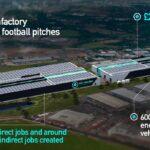 WEST MIDLANDS GIGAFACTORY APPOINTS LEADING EV RECRUITMENT EXPERT AS SKILLS AMBASSADOR
WEST MIDLANDS GIGAFACTORY APPOINTS LEADING EV RECRUITMENT EXPERT AS SKILLS AMBASSADOR Guerrilla RF Releases New ¼ W Linear PAs Targeting Automotive and 5G Infrastructure in the 2.5GHz and 3.6GHz Bands
Guerrilla RF Releases New ¼ W Linear PAs Targeting Automotive and 5G Infrastructure in the 2.5GHz and 3.6GHz Bands

